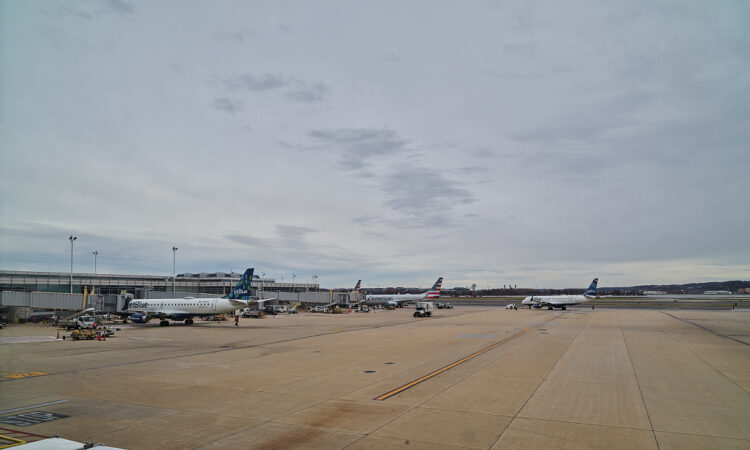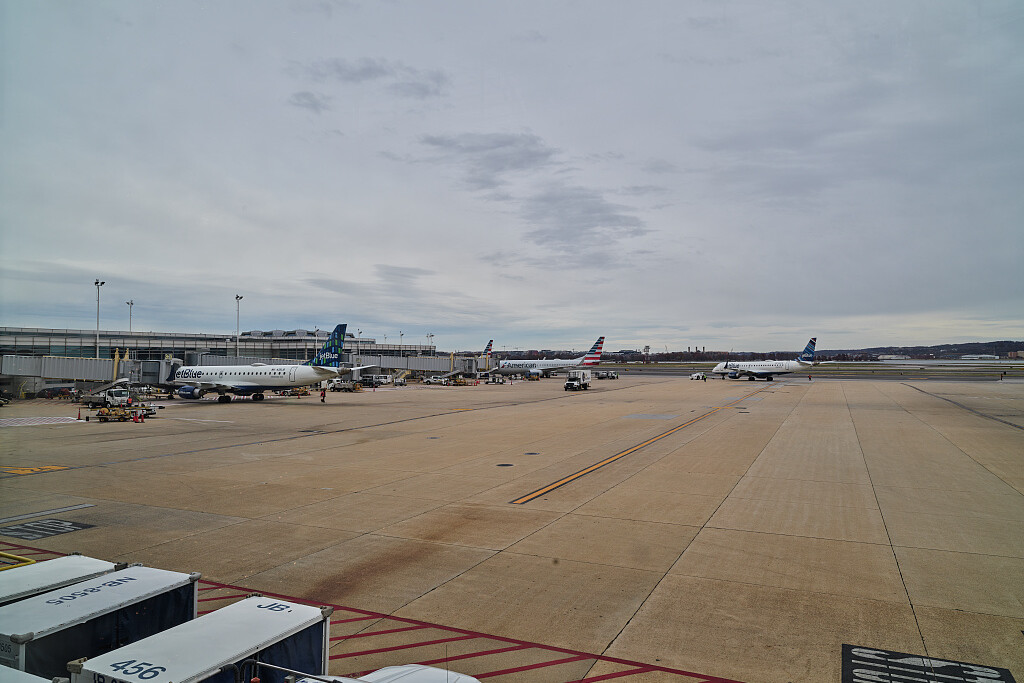

The U.S. House voted 387-26 Wednesday to reauthorize $105 billion for the Federal Aviation Administration for the next five years — and to finalize a hotly debated deal adding flights at busy Washington Reagan National Airport in the process.
Advocates for the bill, which won votes from every ideological corner of the often-divided House, touted its aviation safety and consumer provisions. But some Virginia lawmakers echoed last week’s opposition from all four Maryland and Virginia senators, who criticized the provision to add five incoming and outgoing flights daily from the airport that sits on the banks of the Potomac River.
“I’m deeply concerned about the provisions that would aggravate dangerous conditions at National Airport,” Rep. Don Beyer (D-Va.) said during floor debate Tuesday. “I cannot support a bill that hurts my constituents, disrespects all the elected leaders from Virginia, Maryland and D.C., and directly harms our airport and the passengers who use it.”
Beyer was one of six Virginia votes against the measure Tuesday. But while Maryland’s two senator voted against the bill last week in the Senate, all seven Maryland House members who voted Tuesday voted for the measure. Rep. David Trone (D-6th) did not vote.
The House vote sends the measure to President Joe Biden’s desk ahead of a Friday deadline. The
The bill:
- Increases funding for the Airport Improvement Program that funds infrastructure improvements at airports of all sizes across the country;
- Requires the agency to hire more air traffic controllers;
- Updates the aircraft safety certification process; and
- Requires airlines to automatically refund passengers on flights delayed three hours or longer, among many other provisions in its more than 1,000 pages.
Missouri congressman ‘could not be more proud’
The bill’s passage was something of a career capstone for House Transportation and Infrastructure Chairman Sam Graves (R-Mo.), one of the few pilots in Congress.
“I’ve served in this House for more than 23 years and I’ve been looking forward to passing an FAA bill as chairman of the Transportation and Infrastructure Committee for a long time,” Graves said on the floor Tuesday. “This is the kind of bill that a chairman only gets to do once in their career and I could not be more proud of the final product that we put together.”
Graves is in his third term as the top Republican on the committee and cannot seek another under House GOP rules, although he can ask party leaders to waive that rule.
He highlighted protections in the bill for general aviation, a term that can apply to all non-commercial and non-military flights.
Rep. Rick Larsen (D-Wash.), the ranking Democrat on the Transportation and Infrastructure Committee, applauded several provisions in the bill, including the Airport Improvement Program funding, which he said could be used for alternative-fuel infrastructure and to mitigate noise and other harmful effects of airports in disadvantaged neighborhoods.
The bill also creates a program to help airports replace firefighting foam made with PFAS, or “forever chemicals,” it funds workforce development grants and bans airlines from charging families to sit together, Larsen said. He said the bill “cements a safer, cleaner, greener, more innovative and accessible future for U.S. aviation.”
DCA flights
Opponents said Washington National, also called DCA, already strains to safely handle the traffic the current level of air traffic in and ouf of the airport. Adding flights will only worsen the safety environment, they said.
But lawmakers from outside the D.C. area argued the additional flights would be a positive. Rep. Hank Johnson (D-Ga.) said they would add “connectivity and economic expansion.”
Rep. Burgess Owens (R-Utah) also applauded the extra flights.
“This legislation (was) designed not for one airport and one airline, but for all of us,” he said. “It gives more convenience, more opportunities to families traveling into Washington, D.C.”
The five new routes have not been selected but some members, including Sen. Ted Cruz, R-Texas, who is the ranking member on the Senate committee that oversees aviation, have speculated that San Antonio could be one beneficiary.
Research from Min-Seok Pang, a professor at Temple University’s Fox School of Business, Russell J. Funk, a professor at the University of Minnesota’s Carlson School of Management, and Daniel Hirschman, a sociology professor at Cornell University, found that the House district represented by the chair of the Transportation and Infrastructure Committee sees more commercial aviation service.
The data shows transportation committee chairs saw flights to their districts increase by more than 5% on average from 1990 to 2019. The analysis, which was published last year in the academic journal Organization Science, also showed that airlines increased direct service to Washington, D.C., from a chair’s district. The numbers generally reverted to normal after the chair’s term.






